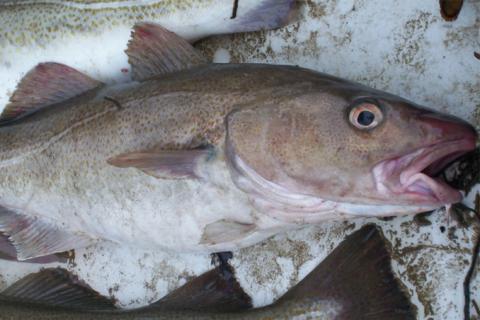
Seafood is one of the healthiest sources of protein and contains nutrients such as lipids, selenium and long-chain omega-3 fatty acids (PUFA) which have neuroprotective, cardiovascular, and immunological benefits. Yet consumption of seafood is also associated with risks due to toxic substances, such as mercury and arsenic, that can accumulate in marine-sourced foods. The public may have difficulty assessing the relative risks and benefits of different sources of seafood, leading to lower than recommended intake levels of nutrient levels. Recent publications as well regulatory and advisory agencies have advocated for the concurrent measurement of both nutrients and contaminants in the same tissues, and for the development of regionally relevant consumption guidelines. The Gulf of Maine is host to multiple productive inshore and offshore fisheries, yet there is little information regarding the nutrient and contaminant levels in commercially relevant species for these fisheries. This information is important to providing optimal fisheries products to seafood consumers.
The proposed research aims are to fill knowledge gaps regarding relative nutrient and contaminant concentrations in commercially important seafood from the Gulf of Maine in order to examine the benefits and risks of consumption. Local fishermen, the National Marine Fisheries Survey, and local aquaculture sources will be engaged to assist with sample collection. Muscle tissue will be sampled from 12 species spanning a range of habitats, life history strategies, trophic characteristics, and sizes. Concentrations of mercury, inorganic arsenic, selenium and total lipids will be measured on all samples, with a subset analyzed for methylmercury and omega-3 PUFA. These concentrations will be used to determine if fish size, trophic status, or location of catch influences the relative nutrient or contaminant load for each of the species examined, and to assist stakeholders in promoting the healthiest seafood choices and the consumption of locally sourced fish.
Principle Investigator

Celia Chen, Ph.D.
Research Professor, Department of Biological Sciences, Dartmouth College
Contact Dr. Chen
Celia.Y.Chen@dartmouth.edu
Project Funding Cycle
2018-2019 NH Sea Grant Biennial Research Funding
Co-Investigators
Kate Buckman, PH.D.
Research Scientist, Department of Biological Sciences, Dartmouth College
Contact Dr. Buckman
Kate.L.Buckman@Dartmouth.edu
Vivien Taylor, PH.D.
Research Associate, Earth Sciences, Dartmouth College
Contact Dr. Taylor
vivien.f.taylor@Dartmouth.Edu